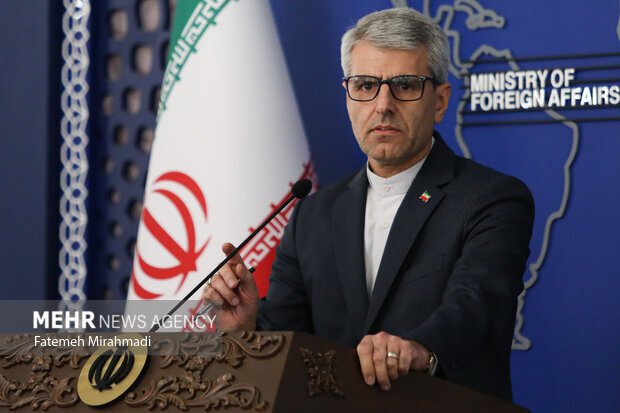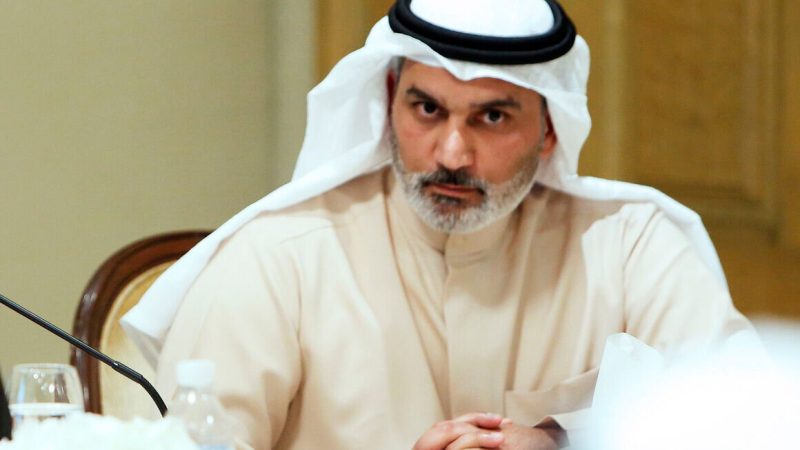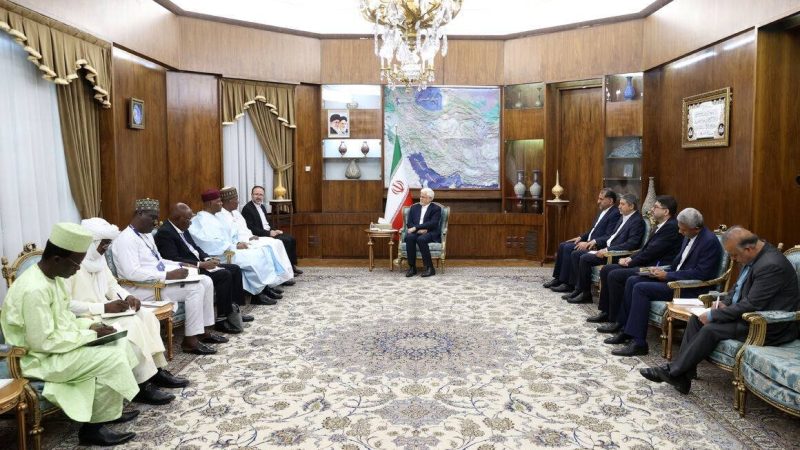Iran seeks concrete guarantees in nuclear talks with US, not promises: Sr. Lawmaker
By Alireza Hashemi
Iran will only accept concrete guarantees in indirect nuclear talks with the US, as repeated American betrayals have shown that US signatures and promises hold no weight, says a senior Iranian lawmaker.
In an interview with the Press TV website, Abolfazl Zohrevand said the core objective of the Oman-mediated negotiations is to address concerns about Iran’s nuclear program, as well as military and economic threats posed by the US and its allies in a durable and decisive manner.
“The goal is for both sides to move away from hostility and resolve disputes through dialogue,” said the member of the Iranian parliament’s national security and foreign policy commission.
He criticized the American side for perpetuating distrust through inconsistent positions. For instance, as he noted, lead US negotiator Steve Witkoff initially accepted uranium enrichment on Iranian soil but later demanded a complete halt to enrichment in Iran, which was also echoed by the hawkish US Secretary of State Marco Rubio.
“These positions show that the American side is not trustworthy,” Zohrevand asserted. “Negotiating with someone who is not trustworthy is futile. If we ignore this, we risk a bigger failure than the 2015 Joint Comprehensive Plan of Action (JCPOA), losing our capabilities without gaining anything.”
The senior lawmaker and former ambassador emphasized that the Islamic Republic demands concrete guarantees to counter the risk of empty promises.
Iran’s Firm Stance: The Non-Negotiable Uranium Enrichment
Iran’s Deputy Foreign Minister, Kazem Gharibabadi, reaffirmed Tehran’s red lines in indirect talks with the US, insisting that the country’s right to uranium enrichment remains non-negotiable. pic.twitter.com/T4htgfYRZY
— Press TV 🔻 (@PressTV) April 20, 2025
Unfulfilled commitments
Reflecting on the JCPOA, commonly known as the Iran nuclear deal, he noted that Iran complied by exporting enriched materials and stopping work at the Arak heavy-water reactor, yet these actions were met with unfulfilled US commitments.
“The signatures of American politicians are not binding for us; only concrete guarantees matter,” he stressed, citing Trump’s unilateral adjustment of tariffs on China as evidence of America’s capriciousness.
“We consider America an enemy and cannot expect it to honor its commitments. The JCPOA experience proved this, and neither Congress nor Trump can offer us concessions,” he added, referring to the speculation that ratification of a new deal by the US Congress would serve as a guarantee for Iran.
Zohrevand also dismissed the notion of US investment in Iran as a guarantee for a new deal, questioning whether American investors would act on Iran’s terms.
Instead, he defined a concrete guarantee as something the US cannot easily retract, such as removing all sanctions and returning all frozen Iranian funds.
“The expert-level talks were very beneficial”
Foreign Minister Abbas Araghchi says indirect negotiations with the United States were held in a much more serious atmosphere than the previous round. pic.twitter.com/ZlDO3EDQJy
— Press TV 🔻 (@PressTV) April 26, 2025
Transferring uranium out of Iran not on table
On speculation about transferring Iran’s highly enriched uranium to Russia under a new agreement, Zohrevand clarified that 60 percent uranium enrichment in Iran has not yet been addressed in the three rounds of talks, as the focus is on establishing a framework for a deal.
He suggested that Iran might consider storing 60% enriched uranium with a strategic partner as a guarantee, but this would depend on the benefits offered by the US.
“It depends on how much Iran gains to justify giving up such leverage,” he said, emphasizing that Iran will not sacrifice its capabilities without reciprocal benefits.
Netanyahu, Trump on same page
Touching on the Israeli regime’s repeated threats against Iran during the indirect talks, Zohrevand said the US and Israel pursue a shared agenda to neutralize Iran’s deterrence capabilities.
He argued that there is no discord between Trump and Israeli Prime Minister Benjamin Netanyahu, describing their positions as a coordinated effort.
“The entire purpose of Trump’s negotiations is to ensure Israel faces no threat from Iran due to its crimes in the region,” he said, adding that Israel wants to maximize this course of threat removal.
US military threats largely a bluff
On Trump’s threats of military action against Iran, Zohrevand dismissed their credibility, arguing that the US knows it would suffer greater losses in the event of any confrontation.
“Iran can deliver a heavy blow to the US with its regional influence,” he said, referring to Iran’s vast ground forces and superior military capabilities in a prolonged war.
He said that Iran could close the Persian Gulf to American forces, destroy their military bases scattered across the region, and expel them.
Drawing a comparison, he noted that Yemen has disrupted US and British capabilities during its confrontation with their warships in the Red Sea.
Zohrevand also underscored Iran’s strong alliances with Russia and China, describing them as “decisive powers in the region” united by their shared confrontation with the US.
He added that China’s hostility toward the US further cements the geopolitical necessity for Iran, Russia, and China to stand together.






